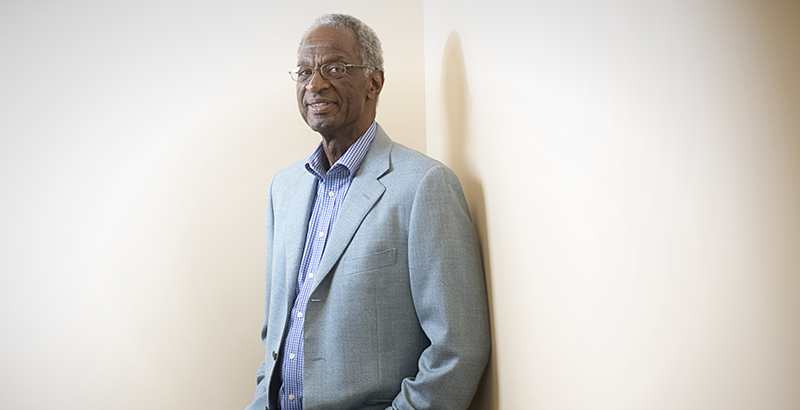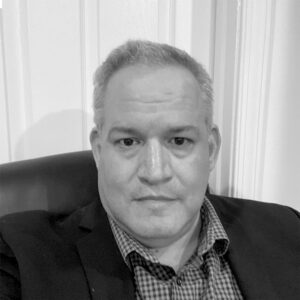QuotED in 2018: The 18 Quotes About Schools and American Education That Shocked, Inspired, and Tickled Us This Year
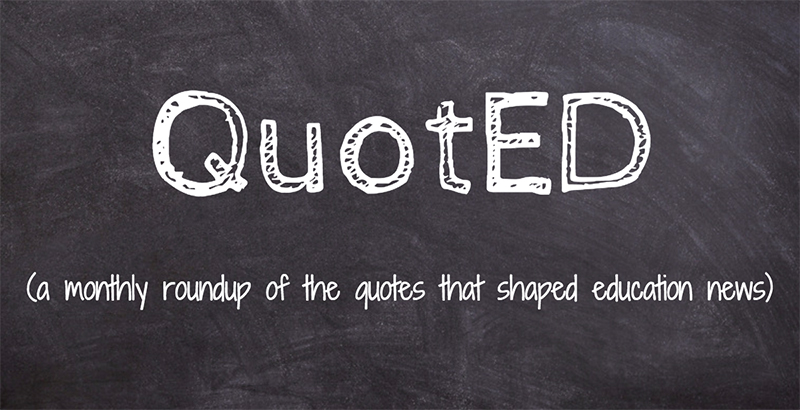
This is the latest roundup in our “Best Of” series, spotlighting top highlights from this year’s coverage as well as the most popular articles we’ve published each month. See more of the standouts right here: The Best of 2018
2018 served up plenty of unforgettable moments in the world of education: Parkland survivor Emma González, eyes closed, offering six minutes of silence for the 17 friends lost in February’s shooting massacre at Marjory Stoneman Douglas High School; the thousands of red-clad, striking teachers marching to state capitols around the country to demand higher pay and increased funding; the U.S. Supreme Court dealing a blow to teachers unions in a long-awaited ruling that dissenting employees cannot be forced to pay public-sector union dues.
These moments of eloquence (and sometimes, the lack thereof) are captured regularly in QuotED, a roundup of the most notable quotes behind America’s top education headlines — all taken from our weekly EduClips series, which regularly spotlights important headlines you may have missed from America’s 15 largest school districts.
Here are a few of our favorite education quotes from 2018:
“I believe that parent choice is widespread in America — unless you are poor.” —Howard Fuller, school choice advocate and distinguished professor of education at Marquette University. (Read at The74Million.org)
“Our actions have not modeled the behavior that we hope to instill in our children that we serve.” —Trustee Diana Dávila, who issued a formal apology on behalf of Houston’s nine-member school board for its contentious and dysfunctional behavior in 2018. (Read at The Houston Chronicle)
“Our goal is to show our staff, this is what it means to prepare our children for the next level. How do we show parents like mine, who had a second-grade education, what is possible?” —San Antonio Superintendent Pedro Martinez, who launched a radical socioeconomic integration plan in the district. (Read at The74Million.org)
“We have absolutely become numb to these kinds of shootings, and I think that will continue.” —Katherine W. Schweit, former senior FBI official and co-author of a study of 160 active shooting incidents in the United States, on the Jan. 23 shooting at Kentucky’s Marshall County High School. (Read at The New York Times)
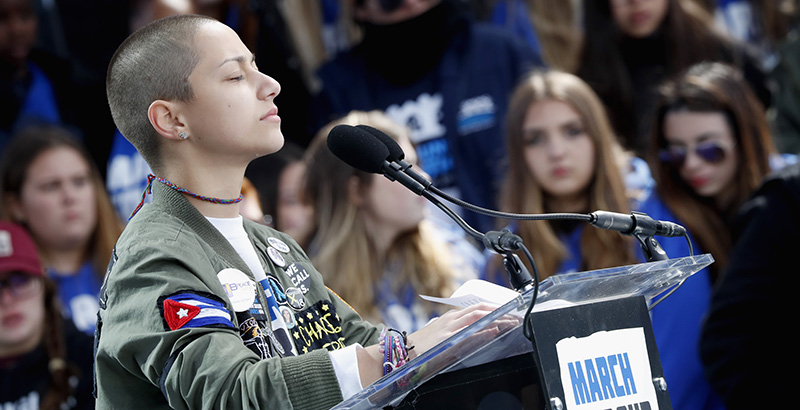
“Six minutes and about 20 seconds. In a little over six minutes, 17 of our friends were taken from us.” — Emma González, survivor of February’s mass shooting in Parkland, Florida, speaking at the March 24 “March for Our Lives” before remaining silent for nearly six minutes to memorialize those killed in the massacre. (Read at Time)
“When we try the same thing over and over again, yet expect different results, that’s not reform — that’s insanity.” —Betsy DeVos, U.S. education secretary, on the failures of past attempts to reform K-12 education. (Read at The74Million.org)
STAHL: Have you seen the really bad schools? Maybe try to figure out what they’re doing?
DEVOS: I have not, I have not, I have not intentionally visited schools that are underperforming.
STAHL: Maybe you should.
DEVOS: Maybe I should. Yes.
—Exchange between 60 Minutes correspondent Lesley Stahl and U.S. Education Secretary Betsy DeVos on Michigan’s low-performing schools. (Read at CBS News)
“This has been education’s lost decade.” —Michael Petrilli, president of the reform-oriented Thomas B. Fordham Institute, on the trend of flat progress on the nation’s NAEP scores. (Read at The74Million.org)
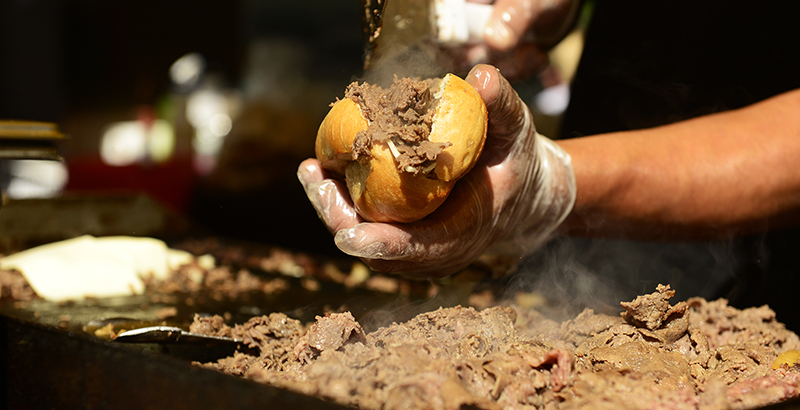
“Wit/Witout: How to order fried onions on your cheesesteak, meaning with or without the onions. (Ex. Whiz wit means you will be getting a cheesesteak, smothered in cheese whiz and topped with fried onions.)” —from the School District of Philadelphia’s guidebook to “Philly slang” for first-year teachers. (Read at 3 CBS Philly)
“Our ultimate goal is that when teachers and administrators are making a decision that impacts students, they should be asking students. Students are the experts. They have been in school most of their lives, they have a lot to say, and we need to listen.” —Cristina Salgado, the student voice specialist for Chicago Public Schools’ Department of Social Science and Civic Engagement, on Chicago’s student voice committees. (Read at The74Million.org)
“Compelling individuals to mouth support for views they find objectionable violates that cardinal constitutional command, and in most contexts, any such effort would be universally condemned.” —U.S. Supreme Court Justice Samuel Alito, ruling for the 5-4 majority in Janus v. AFSCME that dissenting employees cannot be forced to pay public-sector union dues. (Read at U.S. News & World Report)
“Working two jobs and trying to maintain a balance with teaching, it does take a toll, especially when you have a family.” —Joe Reid, until recently a middle school language arts teacher in Hebron, Indiana. A federal analysis shows that 1 in 5 teachers has a second job. (Read at Education Week)
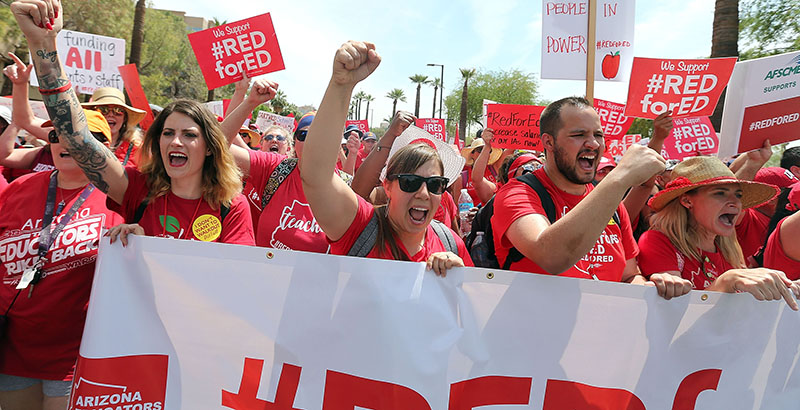
“This cross-state communication is happening because of hashtags. The reason the tactics look the same is because we’re all looking at one another’s pictures and saying, ‘Oh, that looks super cool, all that red.’ We’re just stealing good ideas from each other.” —Dawn Penich-Thacker, communications director at Save Our Schools Arizona, on 2018’s teacher strike movement. (Read at The74Million.org)
“I believe, mark my words, that every [candidate] will get the question, ‘Are you going to fulfill the next three years of universal, full-day pre-K?’ And I guarantee you that all of them are going to say ‘Yes.’ Because that’s what the public wants. … It’s what our kids need.” —Chicago Mayor Rahm Emanuel, on the chances of his sprawling pre-K initiative surviving his departure. (Read at The74Million.org)
“I don’t think we’ll get $200 million unless we hit the Powerball.” —Broward County school board chairwoman Nora Rupert, on the funding a report recommended for mental health professionals to treat students and families after the Feb. 14 shooting massacre at Marjory Stoneman Douglas High School. (Read at the Sun-Sentinel)
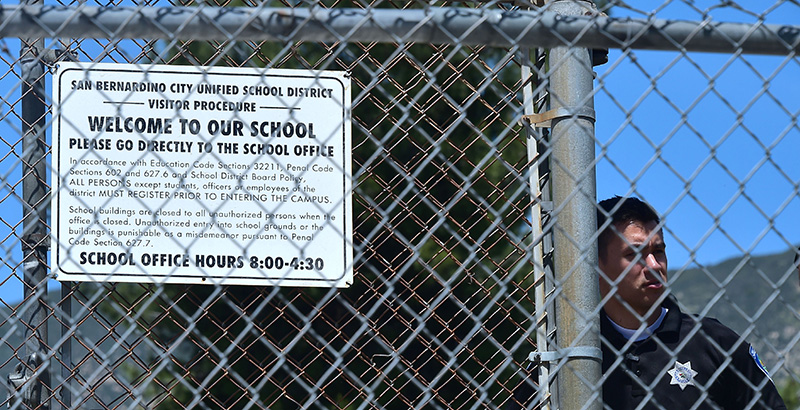
“It’s not that they’re villains and they don’t care and they don’t want safe schools — I’m not trying to send that message. But they’re certainly opportunistic. At the end of the day, they’re looking for new revenue streams.” —Kenneth Trump, president of National School Safety and Security Services, which consults districts on school safety planning, on the $3 billion school security industry. (Read at The74Million.org)
“The lies they’re telling are a little smaller than the lies they used to tell.” —Ron Francis, a Dallas middle school teacher, on the Texas Board of Education’s decision to highlight the “expansion of slavery” as having played “the central role” in sparking the Civil War. Previously, state education standards listed the factor among others, including sectionalism and “states’ rights.” (Read at the Huffington Post)
“Not to unduly shame the American education system, but chances are Bob Dorough has had more of an impact on grammar fluency than any other individual in the 20th century.” —A 2016 People magazine article on Dorough, the Schoolhouse Rock composer who died on April 23. (Read at The74Million.org)
For a roundup of the week’s top education headlines from America’s 15 largest school districts, go to EduClips.
Help fund stories like this. Donate now!

;)
